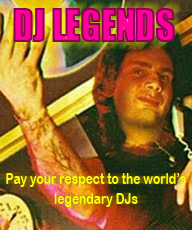Noob questions for Music Theory/Production
Noob questions for Music Theory/Production Posted on: 05.12.2010 by Johnsie Kingrea Hey guys I've recently been reading about music theory (picked up a book called: Music Theory for Computer Musicians. If you have no formal training whatsoever this book has been great so far. I have no idea how to read sheet music but it incorporates both sheet music examples and sequencer examples for those of us who have only ever touched a midi keyboard)First question I have is the book emphasizes everything has to be key to sound properly. Can someone elaborate on this. I get that everything must start with the same root note/key but does that mean all your patterns and chords would have to be the same for all your different parts? Second it seems like music theory largely applies to stuff like keyboards/synths/classical instruments. Does it apply to drums? My first step into production has basically been making drum patterns on Maschine and now i'm just looking to take that to the next step. | |
| Johnsie Kingrea 05.12.2010 | Hey guys I've recently been reading about music theory (picked up a book called: Music Theory for Computer Musicians. If you have no formal training whatsoever this book has been great so far. I have no idea how to read sheet music but it incorporates both sheet music examples and sequencer examples for those of us who have only ever touched a midi keyboard) First question I have is the book emphasizes everything has to be key to sound properly. Can someone elaborate on this. I get that everything must start with the same root note/key but does that mean all your patterns and chords would have to be the same for all your different parts? Second it seems like music theory largely applies to stuff like keyboards/synths/classical instruments. Does it apply to drums? My first step into production has basically been making drum patterns on Maschine and now i'm just looking to take that to the next step. |
| Janyce Jardon 09.12.2010 | also it depends on what "subgenre" of electronic music your making... i dont like using that word, and i dont really like categorizing music depending on what it sounds like but thats the way it is... ANYWAY... say your making a "prog house" track... prog house is riddled with chords left right and centre, and for a genre like this, music theory is essensially quite important if you want the track to sound good... but say for instance your making like a fidget house track, which is basically all pitch bendy, lfo'd synths and samples and highly shifty, allmost unquantized (or nearlly exessively used swing) drum sounds... then music theory is a lot less important... ... but generally stick to the theory, if it sounds good... keep it like that... |
| Lianne Knaus 08.12.2010 | If you tend to stay strictly to one key it usually sounds stale (imo) learn the basics first then you can move on to chromaticism. Also, you asked if all the chords would have to be the same for different parts, no they don't have to. Actually you don't have to follow any of that but doing so would add consistency. It really depends on your ideas. I recently wrote a piece for school and it's quite dissonant (I used my own harmonic universe but something specific called set theory) and only a few of the chords i use in the beginning return at the end. But anyway, this is already going beyond what you should learn first (if you're going to dive into theory). It's always important to practice what you learn but don't be afraid to experiment. Best of luck rdej. |
| Isaac Anklam 08.12.2010 | ... Rules are meant to be broken. Back in the day I was all about music theory and would give my band s#!% if we changed keys in a song and stuff. When I switched to DJing and music production I definitely took on a more lax approach and went with the whatever sounds good theory more... |
| Verona Fashbaugh 06.12.2010 | The first important thing you have to understand that music theory, while extremely beneficial to know, doesn't mean that you have to abide by a strict set of rules, notes, chord progressions, etc. In my own music, I find that a lot of times I stray slightly from my key signature at times, and that's fine. I find it's best to pick a key to base the song out of, and then work from there. Will a song sound bad if you just use random notes and disregard any key signature? Probably, but maybe not. Maybe that's the sound you want for that track. Will picking a key signature and then using that set of pitches most of the time but occasionally throwing in a few incidentals sound better? Of course. The song will be much more cohesive. If you use a major chord with two incidentals that aren't in your key signature should you change it? Not if it sounds good. That being said, music is an art form. In my own opinion, sticking strictly to eight notes can take away from the artistic nature of music. This is all my own opinion, from my experience. A lot of people would disagree, but a lot of people don't like electronic music. |
| Leesa Kowalcyk 06.12.2010 | That is great book...I'm like you with music theory stuff...the one thing I found is that the longer you digg, more there is to learn lol So in the intrest of sanity I do most things by 'ear' if it sounds right, then it is right In general all notes should be in key, but then the are 'accidentals' and songs that change key (I don't believe that is used much in dance music tho) Most drums don't have a definite pitch, so they don't belong to a specific key, but you can tune them to 'GO' more with a particular key. Especially kick drums, toms, etc but it's more advance music tech stuff really. I believe is propobly best to learn some piano/keyboard, I personally want to invest some time in that, rather then learn 'dry' theory |
<< Back to Producer tips and DAW informationReply



